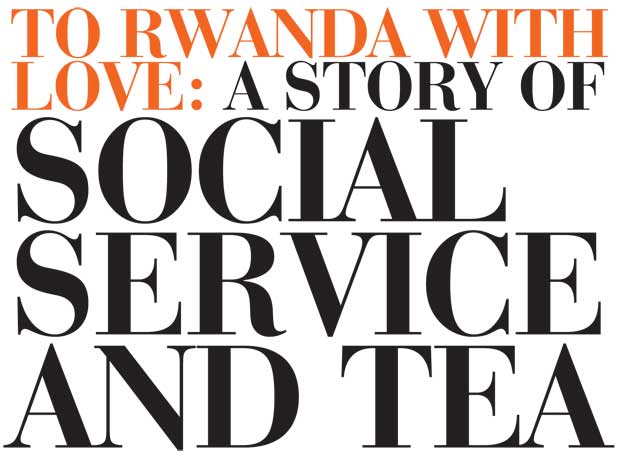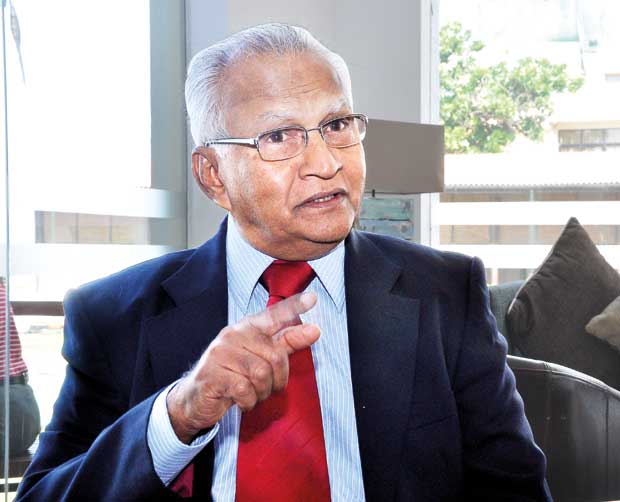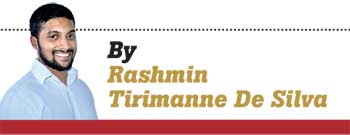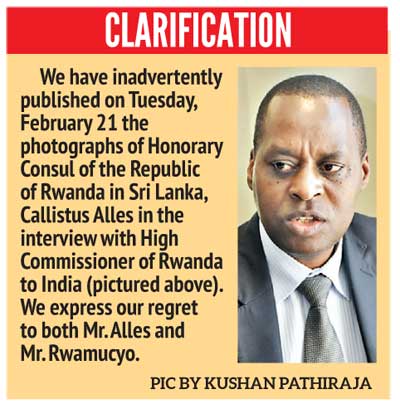Reply To:
Name - Reply Comment
Last Updated : 2024-04-18 22:44:00


I left school in 1960 and joined the Colombo Commercial Company (CCC) as an apprentice. I then won a scholarship and was sent to England in 1963 upon which I graduated and came back to Sri Lanka in 1968. My first job was to run the foundry at the carpentry workshops at the CCC since I had  a specialized knowledge in them. During my work here I designed the first centrifugal casting machine for drier heaters in Sri Lanka. I was then sent to Kandy after some time as an Assistant Mechanical Engineer and here we built factories as well as the Hunnasgiriya Hotel and I was tasked with visiting all the factories to advise them on maintenance of the machines. After two years I was promoted to Chief Mechanical Engineer at the Badulla Commercial Company. I started a foundry there as well.
a specialized knowledge in them. During my work here I designed the first centrifugal casting machine for drier heaters in Sri Lanka. I was then sent to Kandy after some time as an Assistant Mechanical Engineer and here we built factories as well as the Hunnasgiriya Hotel and I was tasked with visiting all the factories to advise them on maintenance of the machines. After two years I was promoted to Chief Mechanical Engineer at the Badulla Commercial Company. I started a foundry there as well.
I was fortunate to be associated with the design and research of the first fluid bed drier in the world which was installed in Telbedda. Mike Boyd Moss was the manager of the factory and we had great respect for each other. Actually when he went to East Africa to start a new tea factory he wanted a new technical manager and he asked if I could come and that’s how I went to East Africa myself.
Before leaving in 1978 I went to the Ceylon German Technical Training Institute as the first Director Principal where I wrote the first constitution for the place and upgraded the position of Principal to Director Principal. It was here that I got the offer to go. Since it was hard to leave from a Government place I took a job at Volanka since it would be easier to get away from there and left in 1978 to East Africa.
On and off CCC made tea machinery so I was associated with them. If we sold machines then we would take over the manufacture of the company so that everything would be done right. Even today my biggest advantage is that I am an expert in the manufacture of the machines and also in the tea industry. So I can make the machines do what I want.
I worked in Rwanda for 20 years. Then in Burundi and Kenya for 15 years. In Rwanda I did a lot and became very well known to the Government and the public. I was also a Rotarian and the President of Rotary Club of Kigali which is the main club there. As a Rotarian I was involved in several projects.
There was a literacy programme where we taught 15,000 people to read and write. We had a solar project where we taught bush people to make a solar cooker and cook using the sunlight. We also taught them to make a brick stove that was in the shape of a boot and became world famous as ‘Rwanda Boot’. This took 1/10th of fuel that was used to cook normally.
Through this we tackled a big environmental issue since 90% of fuel used is for cooking in Rwanda and raises the issue of deforestation. We also taught them how to make a local thermos. In Rwanda there is a habit where the husband goes to the bar, comes back late and the wife has to get up to heat the food.
They would cook their meals in these solar cookers. They also used the thermos as a basket to keep the food warm, until the husband comes home. This way he is also happy and he won’t disturb his wife. The basket was called the ‘Peace Maker’. Even today when I go to Rwanda women virtually worship me. We also sent women from our area to a special basket manufacturer. Here they would learn how to make baskets and we used the baskets to put tea in and sold them in value added form. With the Rotary I managed to get six 40 foot loads of wheel chairs which I distributed in Rwanda, Burundi and Congo. I also started the International Disabled Day in Rwanda. We started the ‘Jaipur Foot’ which originated from India and is a cheap artificial leg used for disabled people. We brought the technology to Rwanda and taught the people how to make it. They are still carrying it on.
Then amidst all these I became known and was invited to be part of the President’s Economic Council and upon my retirement in 2012 they wanted me to be
their ambassador.
With all due respect to the knowledge of the people, the world has changed today and they haven’t changed with it. They would be happy growing many things to be self supportive but they don’t go further from that. If you want to go further and earn more then you can’t think in terms of little plots. This change in thought has been seen in the tea industry itself.
They had agriculture practices which had been done for several years. However, I thought the way I was doing pruning was better than their method and I tried to convince them to change, but they didn’t. So I used this method in my fields. After a few years however they saw the benefits of it and today they have copied it. So sometimes their way may not be the best way. This Government is totally dedicated to uplifting the rural masses.
I was the first to go to the Rwandan tea industry and since then they have employed Sri Lankans there. I bought 500 hectares of land to grow firewood because of environmental issues involved with deforestation. For this I got an agro based guy to come and do the forests. Eventually before I left in 2012 I got another Sri Lankan, Rohith Peiris, to understudy me from 2007 to take over from me in 2012. Because we did such a great job it became known in Rwanda that Sri Lankans are good professional workers so for other factories as well they employed Sri Lankans.
Eighty per cent of people in Rwanda organised the genocide. This Government has the difficult task of getting them on board but they are always viewed with suspicion. Ajan, speaking at the Galle Literary Festival said that he used to write nice things before but his Editor had said that they couldn’t publish his work any more as it was not speculative enough. So he had to look for something dramatic. It was due to necessity that he did this.
He also lived among the 80% so he would have been totally influenced by what they have told him. He also said that the Government was always alert and watching. What would you do if 80% of the population were trying to kill you? You would obviously like to know what is going on. This Government has done much more for the 80% than their own tribal leaders. The GDP has increased by 6-7%. At the beginning they were trying to criticise the Government but when I left they were united. They adore this President. People who had top jobs in the UN left their high salaries to work for a pittance for the betterment of Rwanda.
You feel sorry when people unduly criticise the efforts. It was the first country to use drones to take blood to the interior. He didn’t want to go for a third term but the people didn’t want him to leave. He is not the kind of person who will stay eternally. He will hand it over when the time is right.
Ask what those presidents have done for their country. Congo has the richest minerals. What has he done with them? He was interviewed once and they said he was the 5th richest man in the world but his people are the poorest in the world with so many minerals. He said “My dear young fellow get your facts right. I am the third richest man.” That is their mentality. What has he done to his country compared to the work in Rwanda? I have several facts on the achievements of Rwanda. A World Bank report has placed Rwanda among the top 6 countries demonstrating global competitiveness. The President has been named by the UN as a champion of earth for fighting climate change and has been awarded several awards for post genocide reconstruction. Rwanda is the 2nd in doing business in Africa in 2016. This speaks for all the work he has done.
Rwanda did a great job in reconciliation with a home-grown solution where perpetrators sat with the victim and the community and confessed and showed remorse. That was the healing process which is missing in Sri Lanka. We can do everything to improve the economy but the one on one healing process is missing. In Rwanda they forgot whether they were Tutsis or Hutus and called themselves Rwandans. That is what we can do.
I still work as a consultant and I am on the board of 5 companies in Rwanda including the biggest  factories group in Rwanda. Three of my companies are first second and third in the Mombasa Auction in East Africa.
factories group in Rwanda. Three of my companies are first second and third in the Mombasa Auction in East Africa.
When I was in Africa I wanted to give something back to Sri Lanka and from 1989 to 1994 during my two month holiday I used to come and advise the tea industry. For my family and I, home is home. So I want to get back to my roots and we won’t be going back.
As a good human being and a professional who never stinted to help others. I did my best for my country and company to improve whatever I could touch on my journey. Before I left I was the president of APEX in Sri Lanka and then when I was in Africa I was the President of Rountable. That is where my community service came in. I loved doing it. I started a kindergarten school and a playground and gave pipe borne water to the people in my area. I couldn’t have done all this without my family however. When I left, my daughter was 4 years and my son was 4 months. We went to the deep bush with nothing else there. The roads were terrible and we had to travel far to see a doctor. To keep costs down in the factory since we were on a loan at the beginning, my wife and I used curtains from where we lived before. So it was very difficult. I left a good foundation in the Sri Lankan management staff there. I started the first English speaking Rotary club in Rwanda which is now one of the leading clubs there and we built the first public library there as well. We put Sri Lanka on the map for them. So I thank God for all of this.
prempathirane Friday, 24 February 2017 06:01 PM
Retired Engineer
Sumithra Dias Saturday, 25 February 2017 08:04 PM
Congratulations ! You have done an excellent service to the people of both the countries. I am proud of you as a Sri lankan and as a one time colleague.

Add comment
Comments will be edited (grammar, spelling and slang) and authorized at the discretion of Daily Mirror online. The website also has the right not to publish selected comments.
Reply To:
Name - Reply Comment
On March 26, a couple arriving from Thailand was arrested with 88 live animal
According to villagers from Naula-Moragolla out of 105 families 80 can afford
Is the situation in Sri Lanka so grim that locals harbour hope that they coul
A recent post on social media revealed that three purple-faced langurs near t